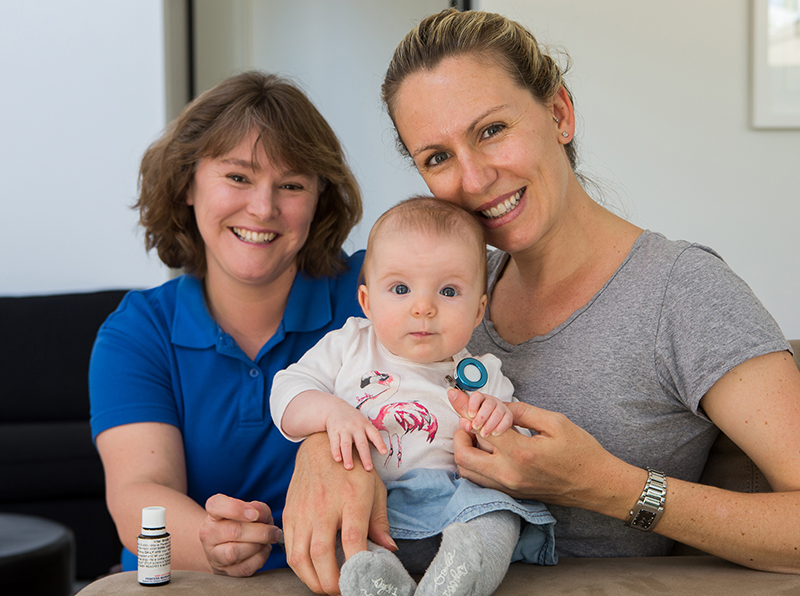Search

A study led by The Kids Research Institute Australia has suggested vitamin D supplementation in babies is no match for sunlight when it comes to preventing eczema.
The Australasian Society of Clinical Immunology and Allergy (ASCIA) Guideline: Infant Feeding for Food Allergy Prevention is an update of the 2016 ASCIA guideline. This updated guideline provides recommendations specifically in relation to infant feeding for food allergy prevention.
Common food allergens have been detected in breast milk with wide inter-individual variations in concentrations. As maternal factors, such as age, smoking, and body mass index have been associated with breast milk composition, we aimed to identify maternal characteristics associated with the concentration of food allergens in breast milk.
Iron deficiency (ID) is the most common nutritional deficiency affecting young children. Serum ferritin concentration is the preferred biomarker for measuring iron status because it reflects iron stores; however, blood collection can be distressing for young children and can be logistically difficult. A noninvasive means to measure iron status would be attractive to either diagnose or screen for ID in young children.
Pregnant women are advised to take folic acid (FA) supplements before conception and during the first trimester of pregnancy. Many women continue FA supplementation throughout pregnancy, and concerns have been raised about associations between excessive FA intake and adverse maternal and child health outcomes.
Little is known about how sun exposure may affect the maternal skin barrier during pregnancy when many hormonal and physiological changes occur. In this longitudinal observational study, 50 pregnant women were recruited at 18-24 weeks' gestation, 25 in summer-autumn, and 25 in winter-spring. At three time points in pregnancy at 18-24, 28-30, and 36-38 weeks' gestation, participants completed a validated sun exposure questionnaire and had skin permeability and surface pH measured on the volar forearm.
Nutrition is a modifiable lifestyle factor that may play a role in allergic disease prevention. This article summarizes current evidence on the antenatal diet as a consideration for strategies to prevent child food allergy. As eczema in early infancy substantially increases the risk of food allergy development, the effects of maternal dietary intakes during pregnancy on infant eczema outcomes will also be discussed.
Complementary feeding induces dramatic ecological shifts in the infant gut microbiota toward more diverse compositions and functional metabolic capacities, with potential implications for immune and metabolic health. The aim of this study was to examine whether the age at which solid foods are introduced differentially affects the microbiota in predominantly breastfed infants compared with predominantly formula-fed infants.
Infant growth trajectory may influence later-life obesity. Human milk provides a wide range of nutritional and bioactive components that are vital for infant growth. Compared to formula-fed infants, breastfed infants are less likely to develop later-onset obesity, highlighting the potential role of bioactive components present in human milk.
The dramatic rise in allergic disease has occurred in tandem with recent environmental changes and increasing indoor lifestyle culture. While multifactorial, one consistent allergy risk factor has been reduced sunlight exposure. However, vitamin D supplementation studies have been disappointing in preventing allergy, raising possible independent effects of ultraviolet (UV) light exposure.
